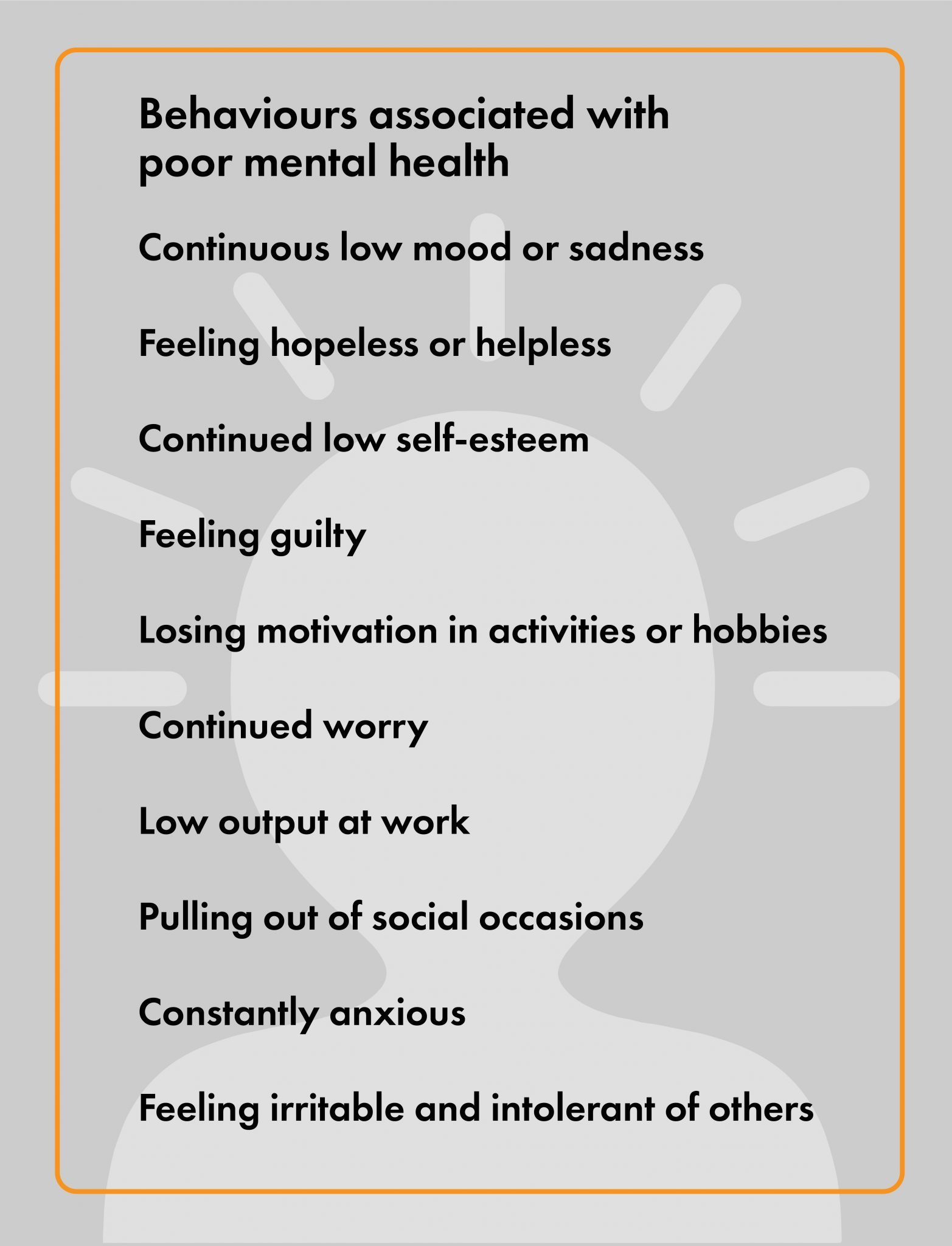Stigma: a mark of disgrace associated with a particular circumstance, quality, or person.
From Monday 13thMay – Friday 17thMay it is Mental Health Awareness Week hosted by the Mental Health Foundation (MHF). Each year the MHF raise awareness on contributing factors to a person’s mental health. In years gone by this has varied from topics like stress, relationships, loneliness, sleep, drugs and alcohol. This year they are tackling body image and the challenges surrounding it. We wanted to raise awareness of what this fantastic organisation does, not just annually, but every day to help fight the issue that still affects 1 in 4 adults!
So, what is mental health? The NHS defines mental health as a person’s emotional, psychological and social well-being.
Whilst we fully support the important topic of body image, we unfortunately still have our own battle within our industry where mental health is concerned, while the industry has made great strides regarding improving the understanding of mental health and how to combat it.
We work in a fascinating, fast-paced and exciting industry. But where ever there are positives, negatives are not normally too far away. Construction demands deadlines and budgets to be met. At times it can involve working away from home for extended periods of time, away from family, friends and loved ones. There are many potential factors that contribute to a poor mental state.
Randstad conducted a survey of 3,400 and their mental state of health and wellbeing. It found that 34% of workers have experienced mental health issues within the last 12 months. 46% of women who responded to the survey said they were currently dealing with mental health issues.
In an industry that is already facing potential labour shortages due to other contributing factors, it is a concerning statistic that 56% of 18-35-year olds are considering leaving the industry in the next 12 months due to their mental health condition and the lack of the support they see coming available. This is a worrying statistic as these people should be the future of our industry.

The numbers mentioned above speak volumes for themselves but why is there still such an industry-wide problem? Well, within the same Randstad survey it found that 73% of people surveyed stated they believed that their employers did not recognise the early signs on mental health deterioration.

Alongside the issue of companies not detecting early signs, there is, unfortunately, the matter of stigma attached to mental health problems. It is not an easy topic to discuss at any time, so it is no surprise that 46% of workers who did take time off for mental health reasons did not disclose the real reason they took time off.
The research demonstrates that women suffer mental health more acutely than men and this could have a direct link to the fact there are still significantly fewer women in construction as we highlighted in our Women In Construction blog in March. If there were more women in construction in senior roles, then women may find it easier to talk about their battles. At Gaysha our two mental health officers are both females, and we are seeking to train male site staff shortly.
Mental health is something that I am very passionate about due to the fact of suffering from anxiety, panic attacks and depression as recently as the end of 2018 and the beginning of 2019. I have also seen the devastating aftermath of what suicide can do to a family and loved ones. When you suffer from depression and suicidal thoughts you feel that no matter what anyone says you never see your future being bright. I have been fortunate that I had friends and family around me to support me through the multiple times I have had my darkest moments.
I was also very fortunate to work for a company and director who gave me the time to recover. Whilst I have again beaten off depression it is still something that plays on my mind daily. As I mentioned, I have been very fortunate, but not everyone else has those support networks to help them through, and that is why it is so important that as an industry and a company we continue to keep improving the culture of how we approach it and how we support people through it.
Previous times I have had depression I never wanted to talk about it because I was embarrassed to discuss it as I thought it made me look weak, but now I like to talk about it to hopefully help others. I have wanted to write a blog on it in the past and now I am grateful to be in the position to do it.
There are many ways to help fight mental health, but I believe there is only one way to fight it successfully and that is talking to someone about it. Be it a family member, friend, colleague, director, your doctor or one of the many fantastic organisations in or out of our industry – even if I didn’t believe that at the time, I cannot stress how much you do need to share your battle with others. We are fortunate to have organisations like the Lighthouse Club and the Construction Industry Helpline. There is also the Samaritans, Mind and Time to Talk.

It is highly commendable to see Tier 1 companies such as Willmott Dixon really striving to create a better culture with their All Safe Minds programme which is tackling mental health head-on. This is a great role model for us all. I think this is especially true out on sites as 27% of people surveyed by Randstad said they would like to see a “friendly face” named on site who they could talk to daily.

As a company, we have added mental health and wellbeing to our Corporate Social Responsibility Plan. We have introduced mental health as part of our company inductions, so people understand our culture from the outset of joining Gaysha and knowing a support network is there. We also promote healthy minds through organising company fitness classes, once a week meditation, and we have the wellbeing magazine, Balance delivered monthly which is then distributed to all our sites.
This is alongside a wellbeing section always being in our quarterly company newsletter. We look to build a more robust system to that of Willmott Dixon. We need to train more people to be mental health officers, especially on-site personnel. We need to encourage people to discuss it more openly and make sure we are spotting early signs of mental health symptoms. We want to work closely with organisations such as Lighthouse.
Mental health doesn’t just go away, it is something that we all fight on-going for the rest of our lives, so it is important that we make sure the support is just as good once someone returns to work as it was before it. The issue is not just in construction but outside of it too.
I honestly believe that even organisations as big as the NHS still do not fully know how to deal with mental health, so we shouldn’t feel as an industry we are failing, we can just be a lot better, as can other industries. We are going in the right direction and the more we talk about it the better it will become. We need to remove the stigma associated with such an important topic. As I said, it affects 1-in-4 of us, the suicide rate is 3.7x higher among lower-skilled traders (Source: ONS) so we do better to stop people from leaving the industry or even worse, feeling they need to leave this world.



I am one of the ones who was lucky enough to beat it with the support of others around me and it is because of that that I want to give back to people who don’t have the same help. Even if this blog helps just one person either fight mental health or change their perception of it then it has been a success. I, and, we need to carry on the fight.
Industry Helplines:
The Lighthouse Club – www.lighthouseclub.org
Construction Industry Helpline – 0345 605 1956
National Helplines:
Samaritans – 116 123
M.I.N.D – phone: 0300 123 3393 text: 86463
Mental Health Foundation – 020 7803 1101
NHS Choices – 111
Anxiety UK – 08444 775 774
Recovery – 0203 553 0324

Article by Stuart Moore at Gaysha Ltd, a London-based fit out & refurbishment contractor operating across the residential, commercial and industrial sectors.
Gaysha Ltd, 5th Floor, 8-10 Grosvenor Gardens, London SW1W 0DH
Tel: 0203 887 3623 Email: info@gaysha.co.uk Web: www.gaysha.co.uk








